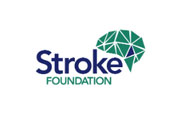Take time out of your busy day and make a Donation to an amazing cause. Shed some light on Heart Awareness
Hearts4heart relies upon the expertise and guidance of a Medical Advisory Committee (MAC), comprising a range of leading healthcare professionals across Australia and New Zealand. Some of their duties include: assisting in developing and reviewing patient educational materials and information sheets; act as a medical spokesperson for the organisation e.g. for media campaigns and at events; act as a medical spokesperson for meetings with Government Stakeholders; actively participate in patient education and support; ensure that the charity produces quality, accurate and reliable patient information by helping us to develop, review and approve publications; help facilitate and promote our awareness campaigns and more.
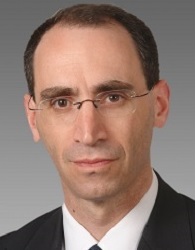
Professor Jonathan Kalman is a clinician-scientist who leads both clinical and research groups in the Department of Cardiac Arrhythmias at the Royal Melbourne Hospital and University of Melbourne.
Professor Kalman has a national and international reputation as a leader in the field of atrial arrhythmias and has authored over 250 peer-reviewed publications, more than 30 book chapters and delivered over 200 invited lectures at national and international meetings.
In June 2015, Professor Kalman was the Paul Wood invited lecturer of the British Cardiovascular Society.
Professor Kalman is the current Scientific Chair of the Cardiac Society of Australia and New Zealand, and of the Asia Pacific Heart Rhythm Society. He was the Scientific Co-chair of the 2014 World Congress of Cardiology. Professor Kalman serves on the editorial board of 9 international cardiology journals and is the co-editor in chief of the Journal of Arrhythmias.
Professor Kalman has received the Simon Dack Award of the American College of Cardiology 2014 for outstanding scholarship, and both the Eric Susman prize (2006) of the Royal Australasian College of Physicians and the R.T. Hall prize (2003) of the Cardiac Society of Australia and New Zealand in recognition of sustained and outstanding research achievement.
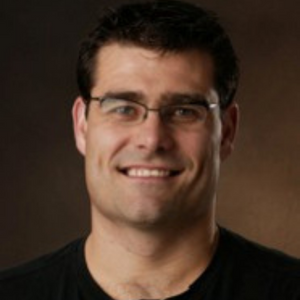
Dr David O?Donnell is an Interventional Electrophysiologist, working at Warringal Hospital, as part of the Genesis Care Cardiology Network and as the Director of Electrophysiology at the Austin Hospital.
Having studied at Melbourne University and the Austin Hospital, his advanced training was in Europe, at the time when the applications of interventional electrophysiology were beginning to emerge and develop. This led to an ongoing clinical focus on ablation for atrial fibrillation and the device management of heart failure.
David also has a specific interest in the management of arrhythmias in athletes and currently works with a number of sporting bodies and elite athletes.Whilst his focus is clinical electrophysiology, he also has a strong commitment to ongoing education, in particular hosting regular training symposia in advanced device implantation techniques for national and international electrophysiology colleagues.

Dr Karen Phillips is a Cardiac Electrophysiologist in private practice in Brisbane. She is a Clinician and Researcher. She heads the Brisbane AF Clinic which is? dedicated? to the comprehensive management of atrial fibrillation. The clinic is based at Greenslopes Private Hospital, Brisbane ? the largest private hospital in Australia.
She underwent specialised training at the Cleveland Clinic, America?s Number One rated Cardiac Hospital in 2006-2007 under the mentorship of Dr Andrea Natale, a recognised world leader in Atrial Fibrillation Ablation.
Since 2008 she has established one of the largest single-operator Atrial Fibrillation ablation services in Australia at Greenslopes Private Hospital. She has emerged as an expert and one of the leaders of Atrial Fibrillation Interventional procedures in Australia, including performing Catheter Ablation for AF and implantation of Left Atrial Appendage Occlusion Devices for stroke prevention. She has a strong publication record, presents regularly at national and international conferences, is actively involved in clinical trials and has been a vocal patient advocate for new therapies for atrial fibrillation.

Professor Rukshen Weerasooriya is a cardiac electrophysiologist based in Perth. After graduating from UWA in 1994, Rukshen trained in all aspects of cardiology at Royal Perth Hospital before undertaking sub-speciality training in cardiac electrophysiology with the pioneering group at Hopital Cardiologique du Haut Leveque in Bordeaux, France. Rukshen is a Clinical Professor of Medicine at UWA and is secretary of the Heart Rhythm Council of CSANZ and chairman of the CSANZ (WA). He is active in clinical electrophysiology and research, having co-authored over 70 peer-reviewed articles.

Professor Prash Sanders is a clinical and academic electrophysiologist. He undertook his Cardiology training at the Royal Adelaide Hospital, electrophysiology and doctoral training at the Royal Melbourne Hospital, before taking up a postdoctoral training in Bordeaux, France.
Professor Sanders was appointed to the Knapman-National Heart Foundation Chair of Cardiology Research at the University of Adelaide and as Clinical Director of Cardiac Electrophysiology at the Royal Adelaide Hospital in 2005. He has since established an internationally recognised electrophysiology laboratory and research group which is at the forefront of strategies for the treatment of atrial fibrillation.
Professor Sanders is an NHMRC Practitioner Fellow and has published >300 peer-reviewed publications. He has received a variety of accolades including being named the 2010 Australian Medical Researcher of the year under the age of 40, receiving a NHMRC Achievement award for the highest ranked Practitioner Award in 2013, and most recently the RT Hall Prize from the Cardiac Society of Australia and New Zealand in 2015.

Assoc. Prof. John Amerena trained in Melbourne before spending four years in the United States at the University of Michigan. He is now a Cardiologist at Barwon Health, and currently has appointments in the Medical School, Deakin University and the Department of Epidemiology and Preventive Medicine at Monash University.
He is the director of the Geelong Cardiology Research Unit which is currently involved in many phase II-III clinical trials and is interested in research into atherothrombosis, in particular with respect to antithrombotic/antiplatelet therapies, especially in the context of atrial fibrillation, Heart failure is also a major interest and he is the Director of the Heart Failure Programme at Barwon Health. He has been on the steering committee of several of the major trials in these areas as National Lead Investigator, and has many publications in these fields.

Dr Alistair Begg MBBS FRACP FCSANZ DDU is an experienced cardiologist with special interests in echocardiography, stress echocardiography, coronary intervention and general cardiology. ?He has particular expertise in stress echocardiography. Dr Begg joined SA Heart in 2007.
Alistair has had 15 years of private practice experience in Sydney and Adelaide, and has previously worked as a cardiologist at Flinders Medical Centre.?? He graduated in medicine from the University of Adelaide in 1989 and commenced his post graduate training in cardiology at Flinders Medical Centre before completing his post-fellowship training in Sydney. He was awarded his Fellowship to the Royal Australasian College of Physicians (FRACP) in 1996. Dr Begg went on to obtain his Diploma of Diagnostic Ultrasound (DDU) in 1997 and in 2006 was awarded his Fellowship of the Cardiac Society of Australia and New Zealand (FCSANZ).?? In 2008 he completed level 2 training for CT coronary angiography and this complements his special interest in cardiac Imaging.
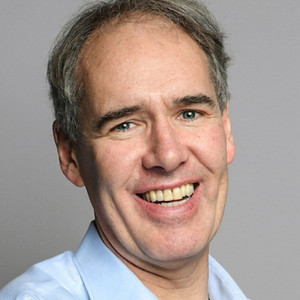
Prof. Kovacic is the Robert Graham Chair and Professor of Cardiovascular Research at University of NSW, Executive Director of the Victor Chang Cardiac Research Institute (VCCRI), and Professor of Medicine (Cardiology) at Icahn School of Medicine at Mount Sinai (ISMMS), New York. He is a practicing cardiologist and runs a translational research program focused on the molecular and genetic mechanisms underlying cardiovascular disease.

Dr Angeline Leet graduated from Monash University, Victoria in 1994. After completing her Cardiology training at Monash Medical Centre and The Royal Melbourne Hospital, she spent a year in Bougainville, Papua New Guinea as a doctor with Australian Volunteers International. She returned to the Heart Failure and Heart Transplant Unit at The Alfred Hospital, Melbourne in 2004 where she has remained since. Her additional interests include Echocardiography, Ventricular Assist Devices (VAD), The Young Heart Transplant Clinic and research in heart transplant myocardial fibrosis and VAD outcomes.

Professor Andrew Sindone is Director of the Heart Failure Unit and Department of Cardiac Rehabilitation at Concord Hospital and Head of Department of Cardiology at Ryde Hospital. He has been involved in cardiac research, teaching and improving the lives of those living with cardiovascular disease for almost thirty years. He set up and continues to run the Heart Failure Unit at Concord Hospital with the Heart Failure Clinic, research, rehabilitation and outreach programs. He teaches medical
students, trainees, General Practitioners and specialists, and runs a program to update specialists in the management of heart failure.
Professor Sindone has received multiple awards and has been Principal Investigator in over 40 international multicentre clinical trials, has presented over 85 research papers and continues to publish in cardiovascular disease. He is a Co-chairman of the NSW Cardiovascular Expert Reference Group, Fellow of the Heart Foundation of
Australia, was on the Scientific Committee for the World Congress of Cardiology in 2002 and is co-author of the Australian Guidelines for the Management of Heart Failure. He is patron of multiple charities and assists the Italian Community in education and support of those with heart disease.

Mr Andrew Newcomb obtained his fellowship in Cardiothoracic Surgeon from the Royal Australasian College of Surgeons July 2007. Andrew is trained in all aspects of cardiothoracic surgery including heart failure, congenital, thoracic and aortic surgery.
His subspecialty training includes complex valve surgery.
His special interests include:
Complex aortic surgery, endovascular treatment of aortic dissection, minimally
invasive valve surgery and surgical treatment of atrial fibrillation.

Assoc Professor Jurgen Passage is a Cardiothoracic Surgeon with a special interest in heart valve surgery, including minimally invasive valve surgery, as well as MitraClip and TAVI procedures.
After commencing practice as a Cardiothoracic Surgeon in 2009 he is now practicing publicly at Fiona Stanley Hospital Perth.? He consults and operates privately at St John of God Subiaco Hospital, where he is also the Head of Department for the Department of Cardiothoracic Surgery.? He also operates privately at The Mount Hospital.
Jurgen Passage completed his medical degree in Leipzig, Germany in 1998. He completed the Australian Medical Council Certificate in 2000.? He undertook post-graduate training in General and Cardiothoracic Surgery in Brisbane and Sydney and completed his FRACS (Fellowship of the Royal Australian College of Surgeons) in 2008.
Jurgen Passage maintains an active commitment to ongoing training and innovation. He is an accredited supervisor of post-graduate training with the Royal Australian College of Surgeons. He is also involved with standard setting for minimally invasive mitral valve surgery as the lead author of the Australian and New Zealand Society of Cardiac and Thoracic Surgeons (ANZSCTS) guidelines for this surgery. He is a regular article reviewer for a number of peer reviewed surgical journals. He is a member of ANZSCTS and formerly served as Younger Fellow on the Executive Committee. He is a member of the National Steering Committee for the ANZSCTS Database Program, which monitors cardiothoracic surgical outcomes. He is also a member of the Cardiac Society of Australia and New Zealand. He is an Adjunct Associate Professor in the School of Medicine at the University of Notre Dame Australia (Fremantle) and a Senior Clinical Lecturer at the University of Western Australia. He is actively involved in research in Australia and also has an ongoing collaborative relationship with the University of Leipzig Heart Centre.
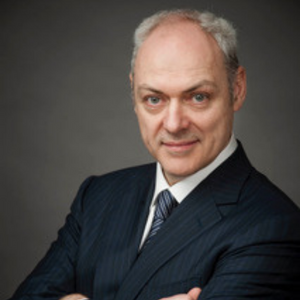
Adrian Pick graduated in 1993, from the Melbourne University Medical School then completed overseas fellowships at the MAYO clinic and the Toronto General Hospital. His interests include minimal access surgery for thoracic and cardiac surgery with emphasis on mitral valve repair and limited access aortic valve replacement. He is also committed to maximizing surgical treatment for both concomitant (often in conjunction with mitral or aortic valve procedures) and lone atrial fibrillation.
More recently he has embraced the transition to Hybrid surgery. He favours the Totally thoracoscopic maze for patients with persistent Atrial fibrillation who have symptoms, have failed catheter ablation or are intolerant to antiarrhythmic drugs or anticoagulants.
Mr Pick works in 5 regional hospitals around Melbourne, has instituted a Cardiac surgical service at Peninsula Private Hospital since 2011 and performs over 500 major Surgical procedures annually. He is a fellow of the Royal Australasian College of Surgeons and a member of EACTS and ISMICS. He presents regularly at local and international meetings and has published widely.

Dr Murdoch completed fellowships in interventional cardiology at The Prince Charles Hospital,Brisbane, Australia and St Paul?s Hospital, Vancouver Canada. Currently, he is focussed on clinical practice, research and education and performs a broad range of complex cardiac interventions including coronary stenting, mechanical circulatory support, TAVI, transcatheter mitral valve repair and replacement and PFO/ASD closure. He has authored 3 book chapters and over 40 peer-reviewed articles, and regularly presents at national and international scientific meetings.
Dr Murdoch is a senior staff specialist at The Prince Charles Hospital in Brisbane, Australia, visits St Vincent?s Private Hospital Northside and is a Senior Lecturer in Medicine at The University of Queensland.

Dr Sonny Palmer offers individualised care to patients with aortic stenosis through his position as clinical coordinator of the St Vincent?s Hospital Structural Heart Program. He is also a Consultant Cardiologist at St Vincent?s Public and Private Hospitals, Melbourne.
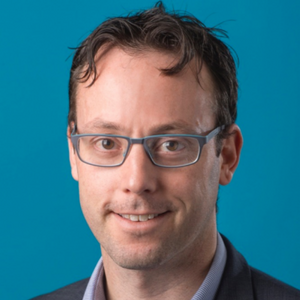
Associate Professor Dion Stub is a clinician, interventional cardiologist and a specialist in structural heart procedures. Dion has a particular interest in treating the cardiac emergencies of myocardial infarction and cardiac arrest.
Dion has published over 65 peer reviewed manuscripts and has been internationally recognised for his research. He has delivered multiple presentations on both cardiac emergencies and structural heart intervention.
Dr Stub currently holds the prestigious National Heart Foundation Fellowship to support his clinical research. He is an Associate Professor with Monash University and Baker IDI Heart and Diabetes Institute, medical advisor to Ambulance Victoria and representative on Australia Resuscitation Council.
Dr Stub graduated from Monash University in 2003 and undertook cardiology training at The Alfred Hospital. He was awarded his PhD in 2013, developing Australia?s first treatment pathway for patients with refractory cardiac arrest through combined research at the Baker IDI Heart and Diabetes Institute and The Alfred Hospital.
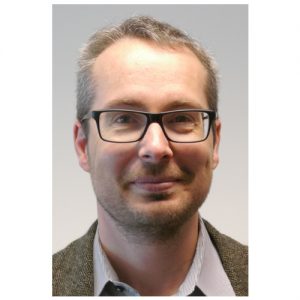
Professor Vincent Thijs is a stroke neurologist and clinician researcher specialised in stroke research with more than 15 years of experience in the field. In his career as clinician he has lead stroke units in Belgium and is now the Head of Stroke at Austin Health. He was recently appointed as the co-head of the Stroke Division at the Florey Institute of Neuroscience and Mental Health.
His main research topics include acute stroke imaging, genetics of stroke, atrial fibrillation and cryptogenic stroke.
He has published more than 200 papers in the field of stroke, including co-authorship in top tier journals NEJM, Lancet, Nature Medicine, Nature Genetics, and Lancet Neurology and >30 articles in the leading journal of the field Stroke. He is/has been on the steering committee of 10 randomized clinical trials (MITI-IV, WAKEUP, SCAST, TASTE, AXIS2, REACT-AF, DIAGNOSE-AF, SOCRATES, RESPECT-ESUS, TEXAIS) and was national coordinator of more than 10 trials both in the field of acute stroke and secondary prevention of stroke.

Ms Rozanne (Rox) Johnston is the Interventional Structural Heart Nurse Coordinator at the Alfred Hospital, Victoria, Melbourne. The Alfred program is one of Australia?s leading sites that provides the latest transcatheter procedures and emerging research technologies
for patients requiring treatment for their heart valves. Rox?s role is to support patients and help them to navigate their journey through the treatment of their valve disease.
Rox has many years of experience as a cardiac nurse in both Australia and the United Kingdom. She was awarded The Heart Foundation Victoria award for excellence in Cardiovascular Health Assessment, at Deakin University, for studies on the care of structural heart patients. Rox is the Structural Heart Nurse representative on the Cardiac Society for
Australia & New Zealand (CSANZ) Interventional Nurses Council Committee.

Professor Hendriks, RN, MSc, PhD holds the inaugural Leo J Mahar Cardiovascular Nursing Chair at the College of Nursing and Health Sciences, Flinders University and the Department of Cardiology,
Royal Adelaide Hospital. In this clinical academic role he aims to develop a collaborative of academic and clinical excellence to support joint research endeavours between Flinders University and the Central Adelaide Local Health Network (CALHN).
He is an Academic Nurse and Health Scientist and undertook his PhD (2013) at the Maastricht University Medical Centre, Maastricht, The Netherlands. His Doctoral studies focussed on developing Integrated Care in terms of specialised atrial fibrillation (AF) clinics and proving improved outcomes as well as the role of specialised nurses to manage these clinics. His expertise is in the field of developing novel models of care delivery based on the concept of integrated care. Professor Hendriks holds a Future Leader Fellowship provided by the Australian Heart Foundation.
He has published >100 peer-reviewed publications.

Georgia Stiekema is a Heart Failure Nurse Practitioner, currently working at Eastern Health in Victoria. Within her roles at Eastern Health, Georgia has been responsible for establishing a model of care and working within the Hospital Admission Risk Program. Georgia provides secondary consults, serves as a medical escalation pathway, medication optimisation and titration, facilitates specialist referrals and works within the Heart Failure Outpatient Clinic. Georgia is also very passionate about research and improving clinical outcomes. Georgia has conducted research, exploring how the inclusion of nurse practitioners in community-based programs can improve patient outcomes and acceptability of this by clinical staff. Georgia has previously presented some of this research at the Eastern Health Research Forum. Georgia was also successfully selected recently to participate in a study tour and attended St Boniface Hospital in Winnipeg, Canada to learn about heart failure management in different healthcare settings. Georgia will also be commencing as the Eastern Health Nurse Practitioner representative in the SAFE-HF research trial, a multi-centre, randomised trial. Georgia is the Immediate-Former Vice-President of the Australian Cardiovascular Health and Rehabilitation Association (ACRA).

Dr. Caleb Ferguson is an NHMRC Emerging Leadership Fellow & Heart Foundation Postdoctoral Fellow at the Western Sydney Nursing & Midwifery Research Centre and holds a conjoint appointment at Western Sydney University and Western Sydney Local Health District. Dr. Ferguson is a Registered Nurse with over a decade of clinical experience caring for individuals with stroke, neurological and cardiovascular conditions.
Dr. Ferguson leads a program of research focused on atrial fibrillation, stroke prevention, and digital health to support self-management.
He has previously held appointments as Chancellors Postdoctoral Research Fellow, Senior Lecturer, and Director of Postgraduate Nursing Studies at the University of Technology Sydney, where he continues to hold a visiting fellowship. Since 2012, he has published over 100 academic works. Including peer-reviewed journal articles, editorials, book chapters, and scientific abstracts. Dr. Ferguson serves as Cardiovascular Nursing Editor of Heart Lung & Circulation. Since 2012 he has been a StrokeSafe Ambassador for the Stroke Foundation undertaking community advocacy work. He is appointed as a member of the Stroke Foundation Research Advisory Committee and an executive member of the Cardiovascular Nursing Council of the Cardiac Society of Australia and New Zealand and Deputy Director of the Implementation Science Platform of SPHERE. He has contributed to the development of national clinical practice guidelines including the National Heart Foundation Australia and Cardiac Society of Australia and New Zealand Australian Clinical Guidelines for the Diagnosis and Management of Atrial Fibrillation (2018) and the Stroke Foundation Clinical Guidelines for Stroke Management (2017).

Dr Lis Neubeck is a Professor at Napier University, Edinburgh, Scotland, UK. She is an NHMRC early career fellow and an Honorary Senior Research Fellow at the George Institute for Global Health. Her research focuses on innovative solutions to secondary prevention of cardiovascular disease, identification and management of atrial fibrillation, and use of new technologies to improve access to health care.
Lis is President of the Australian Cardiovascular Health and Rehabilitation Association, chair of the scientific committee for ACRA 2015, and is the Board President of ACNAP, ESC.





